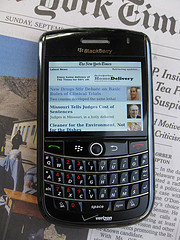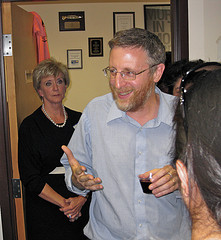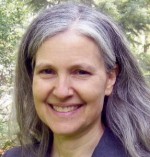A few weeks ago, my BlackBerry notified me that a new version of the New York Times app was available. I downloaded it but didn’t expect much. Previous versions had been slow and kludgy, and I found that I preferred the Times mobile website instead.
But version 1.1.1 turns out to be a major improvement. You can download the latest Times content to your BlackBerry, either all at once or section by section. That means you can use it in places where the cell signal is erratic or non-existent, like on a train or in a subway car. (I’m pretty sure that was true of earlier versions, too, but those just weren’t usable enough for me to test.)
It also means that you don’t have to wait for pages to download every time you click, as you do with the mobile website. Stories load quickly and are presented on one page — no additional clicks just to read one article. And though the screen on my BlackBerry Tour is tiny, it is also ultra-sharp. I can pretty much plow through the whole paper without experiencing eye fatigue. It’s a nice, under-publicized utility at a moment when most of the media world is focused on the sleek but expensive iPad. I’d love to see the Times make the software available to other newspaper companies — starting with its corporate cousin, the Boston Globe.
Mobile has emerged as a crucial outlet for news organizations, and I have a bit of advice for them: Don’t give it away. Though I staunchly believe that users won’t pay for basic Web access, new delivery platforms require new revenue models.
Yes, there are ads (mainly house ads) on the Times app, but there’s only so much you can do with a tiny screen. The app should be free only for customers who already buy the paper through some other delivery channel, whether it be print, Kindle or Reader.
The Times app has me feeling better about my BlackBerry these days. I still plan to upgrade to an iPhone or a Droid when my contract expires next summer. But now, at least, I find myself gnashing my teeth a little less.




 Kudos to NPR for airing
Kudos to NPR for airing 
